
8 minute read
NOSTALGIA
If you grew up in the 1950s, ‘60s or even ‘70s, you’ll remember a time when things were easier and simpler, writes KATE CALLAHAN. WASHING was an all-day affair when you had to stoke up the boiler or feed the ringer, taking care not to get fingers, thumbs or long hair caught in the apparatus.
But you didn’t have to spend half the morning in a knot of frustration talking to a Telstra consultant about the vagaries of your home internet connection.
Advertisement
Wardrobes were smaller because we didn’t have many clothes. There was no need to learn the “art of decluttering”. We were flat out having enough of any one thing.
Socks were darned. String and brown paper were saved. Grandfather’s old trousers were cut down for the children. Stale bread was turned into bread and butter pudding. The combustion stove heated the water.
We shared the bath water. Dad always bathed last but he smelled clean, just like Sunlight soap.
Granny Smith apples came in boxes and, to prevent bruising, half the apples were wrapped in squares of green, wax paper. The paper was collected, flattened out and threaded on to a hook made of fencing wire, which was then hung up for use in the outhouse.
It all sounds rather appalling now, but it didn’t seem so at the time. The ultimate trip down memory lane comes from Pam Van Der Kooy who has written a book called Stuff We Had in the ’50s and ’60s.
If you remember learning to read through the adventures of Dick and Dora (and Nip and Fluff); the fear of getting your fingers caught in the wringer of the Pope washing machine; and sucking on a Sunny Boy from the tuckshop, then you’ll understand it all.
Pam says she is so old she can remember the national anthem playing when television stations closed at midnight, having a backyard dunny, and learning to write on a slate.
Her father Roly Chapman wrote Aniseed Balls, Billycarts and Clotheslines about growing up in the 1930s, which was published in 2002 and later played on ABC radio as a morning serial. Here are some extracts from Pam’s book:
WITH the popularity of some of the tamer Western TV shows, Cowboys and Injuns became a great game outside. I even had the complete Annie Oakley outfit with guns and my brother had the Roy Rogers set.
Of course, we had absolutely no idea of the historical significance of any of it, just like the war games that the boys played with their little green plastic soldiers.
These came in about five different poses to hold a plethora of weapons including rifles, machine guns, pistols, grenades and bazookas. You could even get jeeps and tanks.
There were also “enemy” soldiers available with the German soldiers being a dull kind of grey while the Japanese came in yellow (what else?).
My parents’ generation had only just come out of World War II, so it was all still in their recent memory.
There were, of course, war comics to feed the blood lust and from them we learnt a smattering of German and thought that all Japanese soldiers had buck teeth and glasses.
TO accompany your biscuit (certainly not called a cookie) was the good old cuppa tea (certainly not the teabag type).
Tea leaves (certainly not anything but black tea) would be measured in the pot.
Boiling water from the butter-yellow Hotpoint ceramic electric jug (the kind that had an element you could replace) would be poured in.
Then a tea cosy (pictured right) was plopped over the pot to keep it warm.
Tea cosies were many and varied and often of the knitted kind although there were quilted ones, embroidered ones and even lacy ones if you were really fancy shmancy.
Some had doll heads with or without torsos that were downright creepy.
Meals on Wheels on the Sunshine Coast
Chef prepared; nutritionally balanced meals delivered to your door by a member of your community using locally sourced produce.
Choice of funding options available. Your out-of-pocket cost for a 3 course meal plus wellbeing check can be as little as $4.15 with your Home Care Package. Meals also available under NDIS and My Aged Care, providing great value and peace of mind. Your Choice. Main meal only, delicious desserts, hearty soups, cold meat salads or sandwiches.
Meals can be delivered hot, chilled, or frozen depending on your delivery area.

Pomona – 5485 1777 – admin@mowp.org.au Nambour - 5441 3543 – nambourmow@bigpond.com Coolum Beach - 5446 1000 – coolummeals@bigpond.com

More than just a meal
Registered NDIS Provider

READER John Manton recalls his days as a telephonist in the 1950s and wonders if today’s younger generation could ever imagine being asked, “three minutes, are you extending?” on a phone call. ****** DIANA Hacker recalls when dish mop – just like a floor mop but sink-size – was used to wash the dishes and a linen bag hung on the clothesline to hold the pegs. ELOISE Rowe writes that she was raised in a Brisbane Housing Commission home, where life was sparse and uncluttered.
“You owned nothing personal and were lucky if you had a few pennies to buy fish and chips, or, for a special treat, 10d to buy a Dairy Cream, the original soft serve ice-cream – ‘the cone with curl on top’.
“A girl’s haircut was a shilling so mother usually cut the girls’ hair and there was definitely no pocket money.
“Children shared a bedroom and turnips were served for dinner but everyone put on their good hats to go out.” ****** GWEN Shipp, 75, remembers the game of colours. The kids lined up and someone out front called a colour. If you were wearing that colour you stepped forward. The last to come to the front was the winner. ****** VIVIENNE Ferguson’s mother wore an apron tied around her waist and made from pretty pieces of material, always with a frill on the bottom and sometimes with several pockets.
Ice was delivered for the kitchen ice chest.
FHB or Family Hold Back was when you had a visitor for a meal and you let them have their choice first as often there was not enough food to go around. ****** DIANE Allen, 86, remembers the milkman coming by horse and cart in the early morning and filling the enamel container left out for him. Meat for the evening meal was brought daily and put in the meat safe, a fine mesh cage hung under the house in the cool.
Kids loved the day the weekly groceries were delivered as the box always included a small bag of boiled lollies.
Meals were simple meat and three veg, followed by dessert, always. The family sat at the table together, mother and father at either end.
Clothes were always handed on to friends or relations who had a daughter ready to step into them.
The clothes my mother made were highly treasured. When she needed fabric or thread, we dressed in our best clothes and caught the tram into the city. After visiting Penney’s, we would walk up Adelaide St to Edwards and Lamb and then catch the lift to the material department, where mother spent what seemed like hours caressing fabrics, absorbed in her creative dreams. Yes, these were good times, gracious times. ****** SHOPPING was easier before supermarkets. The grocer didn’t have shelves full of choices. Will that be Kinkara tea or Bushells?
****** REMEMBER bouncing balls in different sequences playing Sevens? Or throwing the ball at the beam under the school building in a game imaginatively called Beam?
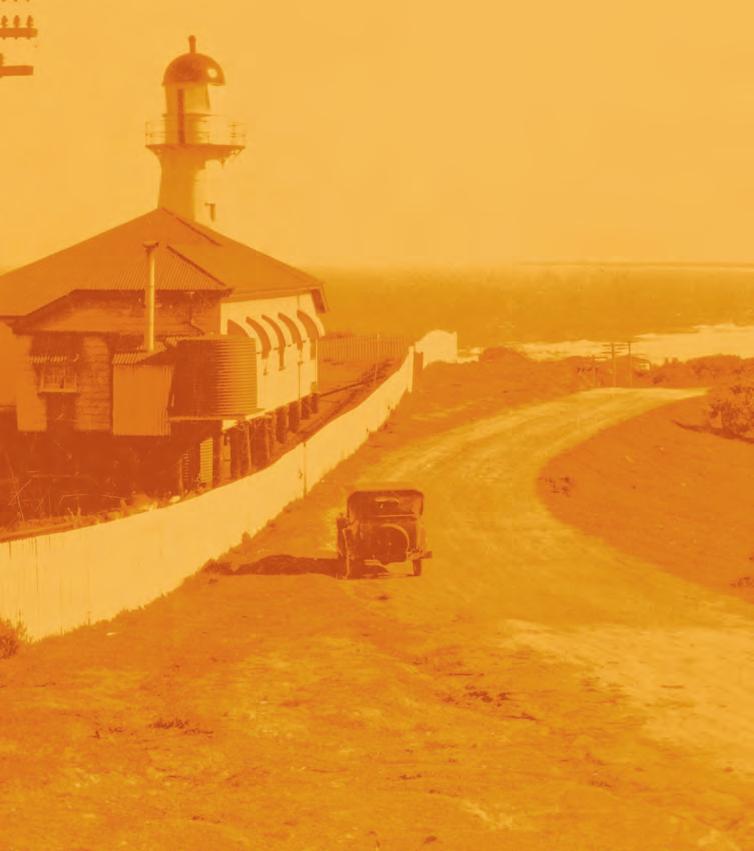
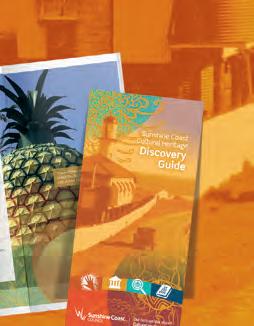
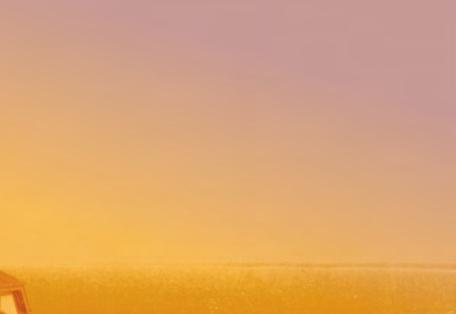
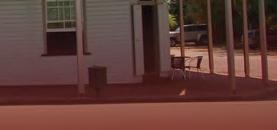




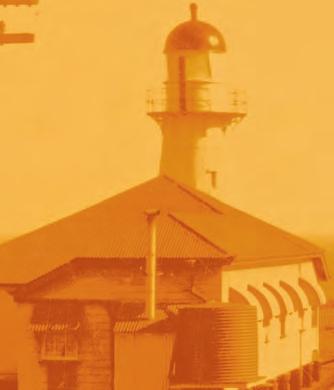








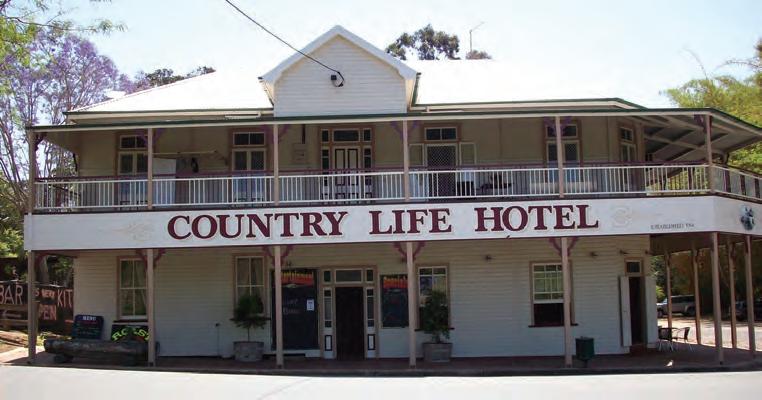




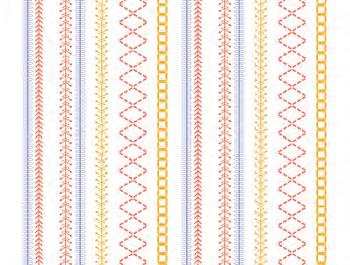
Girls had to learn their embroidery stitches in primary school and would sew samplers.
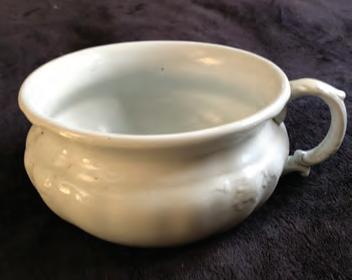
Recognise this? When an ancient great aunt came to visit she would have this under her bed, the “gazunder”. It was unpleasant smelling and scary to a child but these days we must wonder how she ever managed to get her creaking old bones down to use it.

History Comes Alive at the Country Life Hotel
The historic Country Life Hotel, built in 1914, is a warm friendly country bush pub only 30 minutes from Noosa that is part museum with memorabilia dating back to the 1900s.










